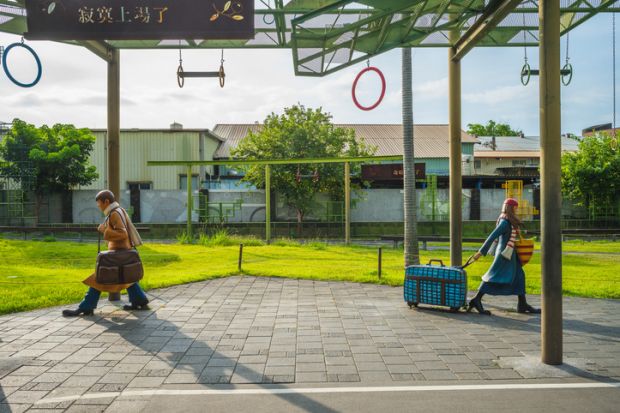Four more Taiwanese universities are set to close in the latest blow to the region’s struggling university sector, as fears grow among academics about what the future holds.
TransWorld University, Mingdao University, Tatung Institute of Technology and Tungfang Design University will cease operations in July, Focus Taiwan reported.
The Ministry of Education first placed the private universities on a watchlist in 2022, when their enrolment rates dropped to below 60 per cent. After failing to tackle resulting problems of debt and unpaid wages, they were subsequently ordered to halt enrolment for the current academic year.
Their closures have now been finalised, with arrangements made for the 728 students collectively still enrolled across the institutions to transfer to other universities.
Given Taiwan’s declining birth rate, which fell to record lows last year, similar closures are expected in the coming years.
“Seeing such news leaves those of us in Taiwan’s higher education system feeling numb,” said one Taiwanese academic, who wished to remain anonymous. “The impact of Taiwan’s declining birth rate on the education system has transformed from a prediction into reality over the past eight years.
“Every day, when we open Taiwan’s news, we see stories about which university is facing [a] financial crisis, which university has insufficient enrolment, and which university is preparing to close down.”
The Taiwanese government’s internationalisation plans have attempted to make up for declining student numbers, but have had limited success to date. International students numbers are still lagging behind pre-pandemic levels (116,038 in 2023-24 versus 128,000 in 2019-20) and researchers are sceptical that the island will reach its goal of attracting 320,000 overseas learners by 2030.
Of the roughly 160 universities in Taiwan, more than 100 are private. As supply outstrips demand, these institutions are most at threat.
“Private universities with no good reputation and no convenient location will have [an] extremely hard time competing with the public universities for new students,” said Kwei-Bo Huang, professor of diplomacy at National Chengchi University.
Some universities have also merged in a last-ditch bid for survival, such as Hwa Hsia, a private technical university, which became part of the National Taiwan University of Science and Technology in May 2023.
Ongoing closures have resulted in disruption for students and job losses for some academics, with these problems expected to get worse. In 2016, the Taiwanese government predicted that 12,000 out of 48,000 university lecturers could face unemployment over the next eight years.
Now, nearing the end of the timeframe, it is unclear how accurate that estimate was, but one way universities are adapting to changing demographics is to “downsize administrative and teaching manpower and hire more adjunct teachers”, according to Professor Huang.
Will Lo, associate professor in the School of Education at Durham University, said that the issue of “homeless teachers” – those employed on casual or fixed term contracts – has been a longstanding one in Taiwan.
“Obviously, the further decline in the birth rate and enrolment implies that these issues may not be easily resolved in the near future,” he said. “In the long run, this can result in a lack of continuity and succession, as casualisation can lead to a disruption or gap between generations in the sector.”
Given the inevitability of more university closures, academics are growing increasingly nervous about their futures.
“Those private university teachers with some research capabilities try their best to move to national universities in metropolitan areas, even if it means being demoted from professor to associate professor or even assistant professor,” the anonymous academic said.
This can have a negative impact on student experience, they added.
“University teachers, worried about job security amid potential school closures, prefer to spend more time on research to build their credentials for career transitions, making teaching and student guidance less of a priority.”
Register to continue
Why register?
- Registration is free and only takes a moment
- Once registered, you can read 3 articles a month
- Sign up for our newsletter
Subscribe
Or subscribe for unlimited access to:
- Unlimited access to news, views, insights & reviews
- Digital editions
- Digital access to THE’s university and college rankings analysis
Already registered or a current subscriber?









